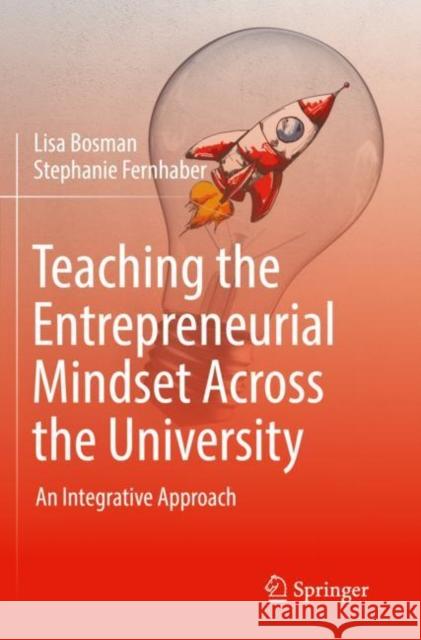Teaching the Entrepreneurial Mindset Across the University: An Integrative Approach » książka
topmenu
Teaching the Entrepreneurial Mindset Across the University: An Integrative Approach
ISBN-13: 9783030790523 / Angielski / Miękka / 2022
Teaching the Entrepreneurial Mindset Across the University: An Integrative Approach
ISBN-13: 9783030790523 / Angielski / Miękka / 2022
cena 201,24
(netto: 191,66 VAT: 5%)
Najniższa cena z 30 dni: 192,74
(netto: 191,66 VAT: 5%)
Najniższa cena z 30 dni: 192,74
Termin realizacji zamówienia:
ok. 16-18 dni roboczych.
ok. 16-18 dni roboczych.
Darmowa dostawa!
“It stretches no point to suggest that creativity, innovation and risk-taking will decide our future societal prosperity. We cannot spread those values too widely, so having taught engineering faculty in their first book, these authors now aim to boost the spirit across all disciplines. What a great success for all of us if they succeed.”
– Mitchell E. Daniels, Jr., president of Purdue University and former governor of Indiana
Despite the relevancy of the entrepreneurial mindset for all career paths, only a small percentage of the higher education student population takes part in entrepreneurially-minded learning opportunities. This gap can be attributed to several factors. From a program perspective, many degrees are already at credit capacity which allows limited room in the existing curriculum to add new courses. From a student perspective, entrepreneurship education is thus positioned as optional and requires extra time (and in some cases tuition) to do so. Finally, from an educator perspective, the majority of faculty members across the university have not been trained in entrepreneurship and may not know where to start.
Teaching the Entrepreneurial Mindset Across the University: An Integrative Approach overcomes these challenges by providing higher education faculty with a toolkit, including tips and strategies, to integrate the entrepreneurial mindset into existing courses regardless of discipline. The book is broken into three core parts:
- Motivation: The importance of the entrepreneurial mindset for all students is established;
- Design: The Entrepreneurial Mindset Teaching Blueprint is introduced as a tool for integrating entrepreneurially-minded curricular learning experiences within existing courses;
- Application: Example entrepreneurially-minded curriculum from across the university are provided.
By integrating the entrepreneurial mindset across the curriculum, students from all disciplinary backgrounds will be better prepared to enter the workforce, solve complex social issues, and leverage entrepreneurial thinking in their everyday lives. This book is meant for educators who want to make an impact and truly prepare graduates for the real world.











